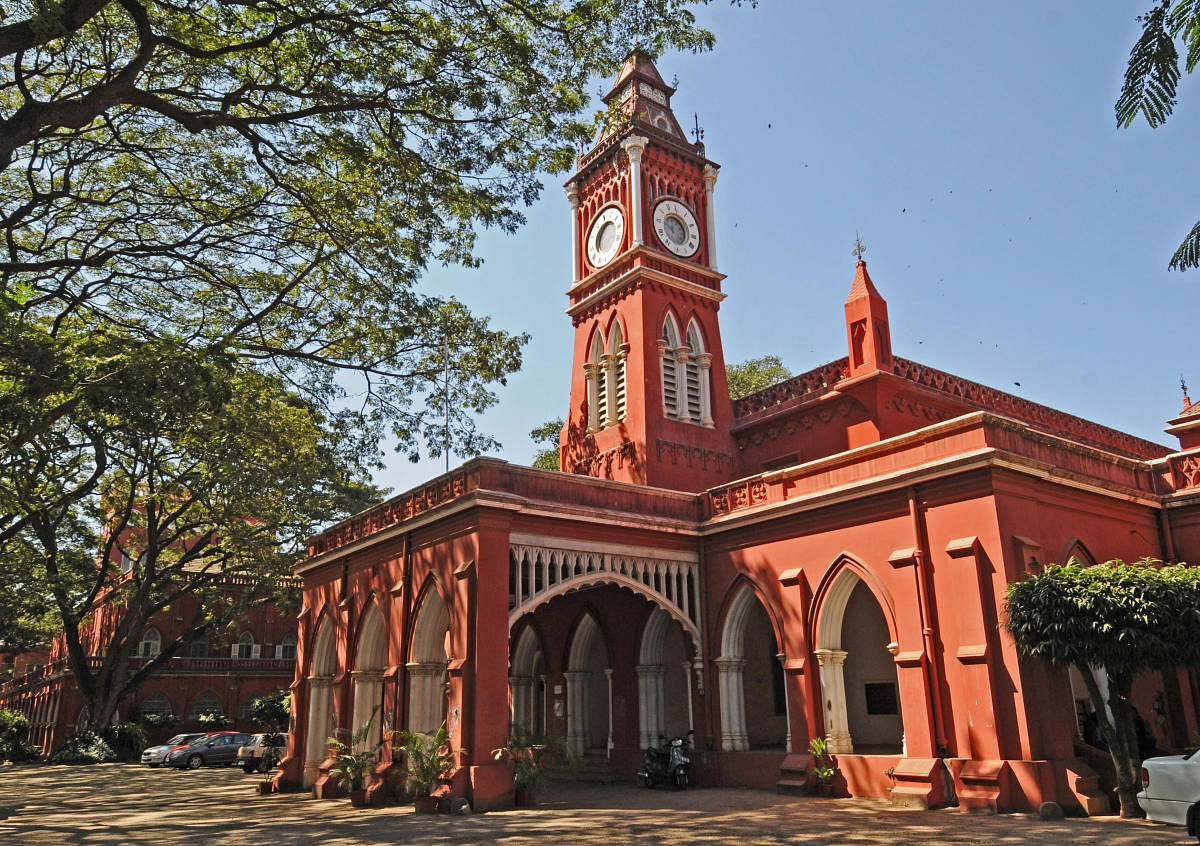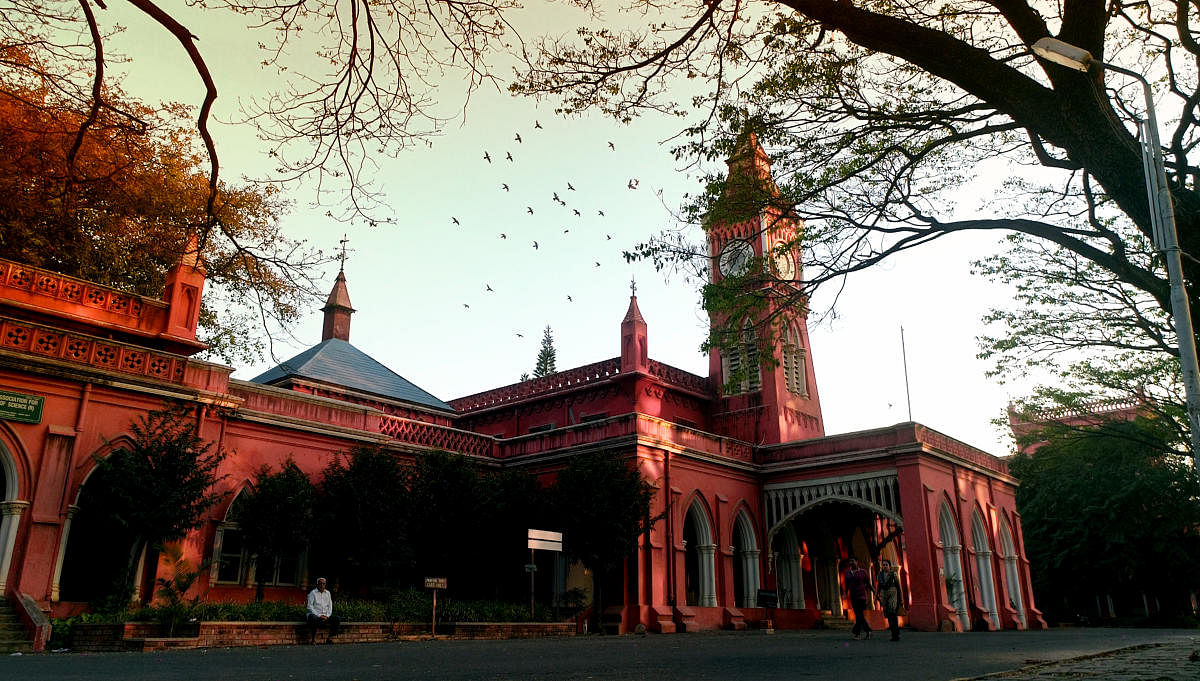

Years of neglect have posed a threat to some of the iconic heritage buildings on Central College campus, including the Senate Hall, with officials now taking up a detailed study on whether to raze or restore them.
The vulnerability of the buildings, built by the British, came to be fore following an audit by experts, including senior varsity faculties.
The internal audit by the Bengaluru Central University (BCU), under which the Central College falls, has revealed that the buildings are dilapidated and may need to be razed.
Vice-Chancellor Prof S Japhet said seven buildings, including the Chemistry Block, Mathematics Block, the library and the Senate Hall were in poor condition. Some need to be demolished while some can be strengthened with repairs, he said.
The details were revealed during Higher Education Minister Dr C N Ashwath Narayan’s visit to the university on Thursday.
The vice-chancellor brought the issue to the notice of the minister and said, “We need to work out how the buildings can be restored and renovated. The university took up the audit of the buildings to know their status,”
said Japhet.
As explained by the BCU authorities, some buildings are witnessing seepage with roots growing deep into the walls. “Especially the library building needs to be taken care of as it has seepage issues,” said a BCU official.
“After careful consideration by the expert committee, the buildings that are unfit will be razed and vertical structures will come up,” said Japhet.
The corridors of the old buildings were once graced by several scientists, including Nobel laureate C V Raman. The gallery in Physics Block from where Raman made the announcement of his Nobel-winning discovery, (renamed ‘Raman Hall’) has been renovated by the university by restoring the heritage structure of the building.
Government land
Minister Ashwath Narayan has promised to provide government land available in the city for the expansion of the university by setting up a peripheral or satellite centre. He advised the authorities to develop the varsity by introducing inclusive, environmental-friendly programmes.
When the vice-chancellor was making a presentation on the need of land for the development of the university, the minister said in a lighter vein, “Even the Freedom Park is near to your university, you can include it also.”